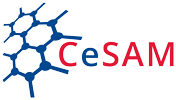The AMR challenge
In Europe, where by 2050 up to 30% of the population will be 60 years or older, the demographic transition will have a decisive impact on health care, leaving patients more susceptible to infections. Health-care associated infections will steeply rise in parallel with the number of complex and invasive healthcare procedures required for implant surgery and immune-compromised transplant surgery, oncology and intensive care patients. The situation further worsens by the very low number of new antibiotics that currently are discovered and developed due to a multitude of problems, varying from poor efficacy (e.g. against Gram-negative bacteria), delivery problems, difficulties in setting up clinical trials, and moreover generating an adequate return on investment of the development of antimicrobials.
However, due to increasing antimicrobial resistance (AMR) – potentially attributing to billions of deaths worldwide in 2050 – there is an urgent need for innovative antibiotics and (personalized) treatment of unbeatable infections caused by resistant microorganisms. This AMR threat calls for a coordinated and coherent multidisciplinary and inter-sectorial approach, for which both the University and the University Medical Centre Groningen have the ambition to tackle this challenge by forging renowned and extensive local expertise in areas of (medical) microbiology, biotechnology, (bio)chemistry, pharmacy, epidemiology, and clinical treatment of patients infected by resistant pathogens.
